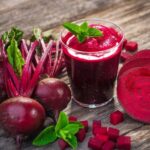In recent years, nutritionists and medical professionals have increasingly recommended incorporating more fish into our daily diets. Fish is an excellent source of high-quality protein and contains lower levels of cholesterol compared to red meat. Additionally, fish is rich in valuable nutrients such as collagen and omega-3 fatty acids, which are essential for enhancing memory, supporting brain function, and boosting overall immunity.
Adopting a consistent habit of consuming fish, especially by gradually replacing red meat with fish, is considered a prudent step towards maintaining a healthy lifestyle. However, to maximize the nutritional benefits of fish, it is crucial to avoid combining it with certain incompatible foods. Listed below are some foods that should not be paired with fish to prevent any adverse effects on digestion and overall health.
1. Avoid eating fish with dairy products
Combining fish with fresh milk, condensed milk, yogurt, or cheese can lead to digestive disorders as both fish and dairy are rich in protein. Consuming them together may cause stomach fullness, bloating, and even abdominal pain in individuals with sensitive digestion. Furthermore, some studies suggest that mixing dairy and fish may trigger skin allergies or adverse reactions, especially in those with allergic predispositions.

2. Refrain from eating fish with citrus fruits like oranges and tangerines
The acid present in citrus fruits can react with the protein in fish, forming compounds that are difficult to digest. This not only alters the flavor of the dish but may also lead to a feeling of fullness, indigestion, or mild abdominal pain. Therefore, it is advisable to consume citrus fruits at least 1-2 hours apart from a meal containing fish to ensure efficient digestion.
3. Limit the consumption of fish with fried foods
Crispy fried dishes, fast food, and processed foods typically contain high levels of saturated fat. When paired with fish, which is easily digestible and nutrient-rich, it can overwhelm the digestive system. Not only does this reduce the nutritional value of fish, but it may also lead to indigestion and increase the risk of accumulating unhealthy fats in the body.

4. Avoid combining fish with starchy foods
While starch is an important source of energy, consuming it with fish, especially in the same meal, can significantly increase calorie intake. Digesting protein and starch simultaneously takes longer, leading to a feeling of heaviness and lethargy after the meal. This is particularly noteworthy for individuals who are ill, recently recovered from an illness, or have a weak digestive system.
5. Refrain from eating fish with tofu and other types of beans
Tofu and beans, such as soybeans, green beans, and black beans, are excellent sources of plant-based protein. However, when combined with fish, which is also rich in protein, it can result in bloating and indigestion as the body has to process an excessive amount of protein at once. This combination should be especially avoided by the elderly and young children to prevent digestive distress.

Tips for consuming fish to optimize nutrient absorption
To maximize the intake of omega-3 and natural collagen from fish, consider consuming both the skin and belly of the fish, as these parts are particularly rich in healthy fats and collagen. Steamed, boiled, or grilled fish are healthier alternatives to fried fish, as they retain the maximum nutritional value without adding unnecessary fat.
Additionally, the choice of fish is important. Smaller fish are generally safer as they accumulate fewer heavy metals in their bodies compared to larger fish, especially those that have lived for many years in rivers and lakes. Small fish, including their bones, which are an excellent source of calcium, can be safely consumed, making them an ideal choice for daily meals, especially for children and the elderly.
Fish is indeed a superfood for health, but to reap its optimal benefits, it is essential to combine it wisely. Avoiding fish with dairy products, citrus fruits, fried foods, starchy foods, and beans can enhance nutrient absorption and support a healthy digestive system. Embrace a scientific and flexible approach to your diet to safeguard the well-being of your family every day.



































